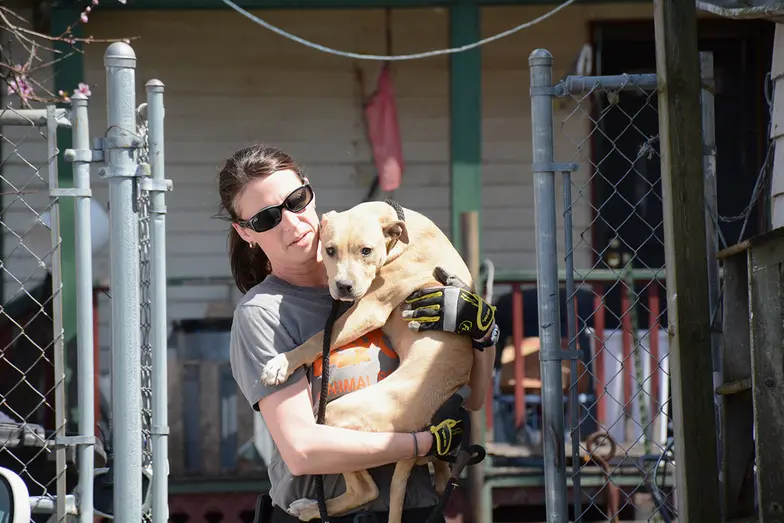How Individuals Can Volunteer with the NFDR Team

The National Field & Disaster Response (NFDR) team recruits committed, qualified volunteers to help during various types of deployments. NFDR responders support field rescue, animal medical care, animal transportation, emergency sheltering and logistics.
Requirements for Responders
- Must be at least 18 years old
- Ability to commit to 7 consecutive days working flexible hours, long days and weekends
- Ability to travel with little to no advance notice preferred
- Ability to create and maintain a flexible, positive and collaborative team environment
- Role-specific training may also be required for more advanced positions
Deployment May Involve
- Working with and around animals, some fractious or diseased
- Exposures to zoonotic diseases (possible transmission to humans)
- Working in extreme hot or cold temperatures for long periods
- Wearing personal protective equipment for long periods
- Walking up to several miles over uneven terrain
- Standing, bending, reaching and lifting up to 50 pounds
Recommended Training and Continuing Education:
- FEMA IS-100.C: Introduction to the Incident Command System
- FEMA IS-700.B: An Introduction to the National Incident Management System
- FEMA IS-10.A: Animals in Disasters: Awareness and Preparedness
- FEMA IS-11.A: Animals in Disasters: Community Planning
- FEMA IS-111A: Livestock in Disasters
- FEMA IS-200: Incident Command System for Single Resources and Initial Action
- FEMA IS-800: National Response Framework, An Introduction
- FEMA IS-5A: An Introduction to Hazardous Materials
- Human First Aid and CPR (American Red Cross)
- Introduction to Disaster Services (American Red Cross)
- Gentle cat-handling techniques Part 1
- Gentle cat-handling techniques Part 2
- Gentle dog handling techniques
- Canine Communications webinar series
- Learning Lab Online Behavior Courses
"This experience has changed me forever in such a positive, wonderful way. The day flies by; it is the most rewarding work I have ever done."
Beneficial Skills
- CPR/First Aid
- Disaster services experience
- Animal handling experience
- Shelter operations experience
For more details, visit our FAQ. Still have questions? Email us.
